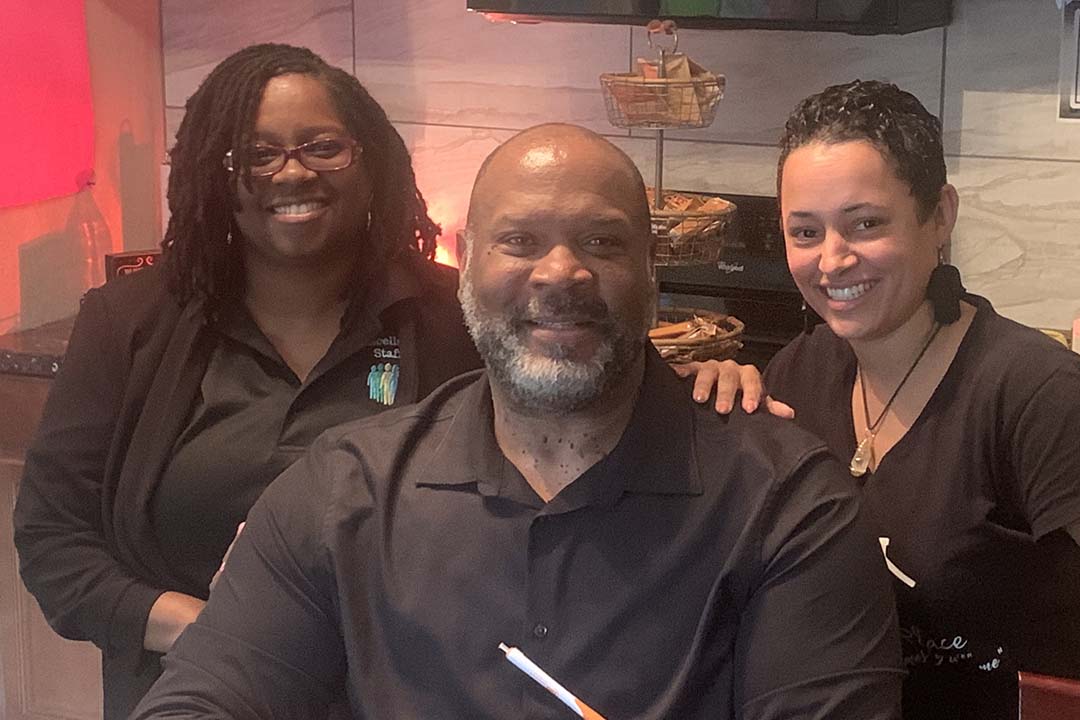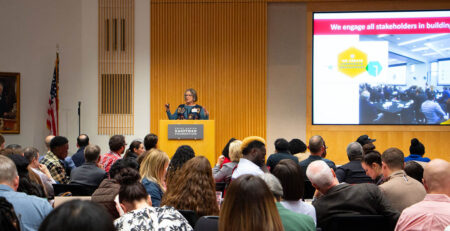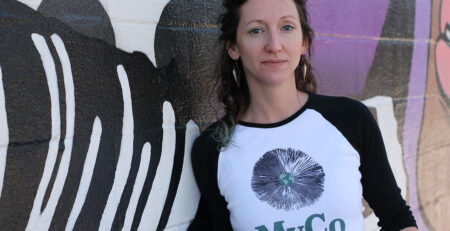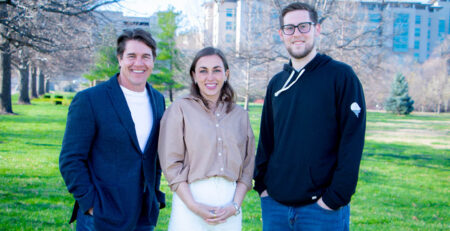These KC Entrepreneurs Beat 2020 with a Mastermind Group; Here’s How to Form Yours
Sometimes who you know is as important as what you know. Small business owners often benefit from friendships with other entrepreneurs to learn, grow and have a sympathetic ear.
In the case of six Black entrepreneurs in Kansas City, they say their informal business roundtable was crucial to their business survival during the pandemic and is generating momentum to inspire even more minority entrepreneurs. This is proof that connections can have an immense impact for any business owner.
Building a group for success
The team of six has no official name, although some in the group call it the Masterminds. Patricia McCreary, Ryonda Hall, Darryl Johnson, LaTasha Crawford, Cerise Hall and Joey Thomas, met at various networking events, including Urban Network and Social, a business event co-founded by Patricia, the executive director of Margaret’s Place Adult Recreation and Wellness Center and a Scale UP! Kansas City alumna.
The first step in building an informal business group is to network and meet other likeminded business owners. For example, Joey and Patricia met when they were in the same breakout group at an outing. Some of the Masterminds met Darryl when he was speaking at an event.
Patricia and some other group members are lifelong Kansas Citians, while others bring experience from other cities. Cerise Hall, founder of Business Speaks, LLC, is a recent transplant from Atlanta. Darryl Johnson, who started Business Credit Works, grew up in Kansas City and graduated from Raytown South High School. He moved back to Kansas City after living in Phoenix and Los Angeles for 25 years.
Find members who have different skills, ways of thinking
Each member brings his or her own skill set to the group, which is a great strategy for entrepreneurs who are looking to assemble their own. Cerise is known for holding other members accountable when they set deadlines for their business projects. Ryonda, CEO of OCD Financial, and Darryl help the others by identifying financial resources and providing inspiration as all of the members worked to save their businesses during the pandemic. LaTasha Crawford, founder of Miscellaneous Staffing, and Joey Thomas, owner of 18OV Barber Shop and founder of the Know Joey? Foundation, provide expertise in small business, hiring and nonprofit organizations.
Patricia brings some of what she learned in ScaleUP! Kansas City to the group. (Learn more about ScaleUP! KC and how it and other programs can benefit your business.)
“People in this group don’t mind learning more, working hard, and sharing information with each other,” Joey says.
Story continues below …
[[CTA]]
Each member’s unique experience, commitment and personality make the group a cohesive unit. Each brings expertise, perspective and at times some spirituality to help each other and the community. What one member lacks, another picks up the slack. When you build your own group keep everyone’s strengths and weaknesses in mind; diversity is key.
“We mesh together and build upon each other,” Ryonda says. “What one person needs, another person is good at. Each of us wants to see the other win, and it’s a genuine connection.”
Navigating the pandemic through groupthink
In mid-March 2020, the group’s text chain lit up as the pandemic shut down all of America. Patricia temporarily closed Margaret’s Place, Cerise’s connections to public school districts were on hold, Darryl and Ryonda’s marketing to groups and in-person meetings ended, no one needed LaTasha’s staffing services, and barber shops were closed, affecting Joey’s business.
The group scrambled as news about PPP loans and other business funding became available. Texts flew back and forth at all times to share information and provide inspiration to the group. Ryonda and Darryl explained financial terms and where to find financial information on business tax filings to fill out loan applications. A business group can help your business find opportunities and make sense of which you should take advantage of.
“When COVID-19 hit, we shared all of our knowledge, and there was no selfishness,” LaTasha says. “We were dedicated to see our businesses make it through the pandemic.”
As the group continued gathering resources to keep their businesses afloat during the pandemic, Patricia began posting some of that information on her social media to share their resources with other businesses. She went beyond that to encourage others to provide food and medicine to others in need during the pandemic.
“That text thread was my life,” Patricia said. “Margaret’s Place closed down, and I was sure I was going to lose my business. This group was my lifeline.”
Coming together to help others
The group’s text chain was relatively new, beginning about two weeks prior to the pandemic shutdown. The initial text had to do with a pre-COVID project the group was working on. Darryl had an idea to develop a co-operative for business owners and was working on by-laws.
“One of my goals is to get more Black people engaged in business lending and credit,” Darryl says. “I love the co-op model because it pools everyone’s money and evenly distributes risk.”
The project drew the attention of other group members who are committed to improving the lives of “people who look like us” as Patricia says. The KnowJoey? Foundation is dedicated to helping youth in the urban core. Cerise Hall, who works with Title I schools to reduce youth violence, has a similar connection to the community. Look for group members who can rally behind a good idea from one of the members the way the Masterminds did around Darryl’s co-op proposal.
That project was temporarily halted during the pandemic. As the business world works toward a new normal, the group is considering a similar project and wants to resume the in-person Urban Networking and Social events. Surviving the pandemic has given them momentum to tackle big goals in the urban core. As school districts reopened at the end of the last school year, Cerise worked on a project with two 16-year-olds who used money they earned working at McDonald’s to acquire two vacant lots to plant vegetables they plan to sell to a nearby elementary school to provide more nutritious meals.
Businesses helping businesses
The murder of George Floyd, other cases of police brutality, and the Black Lives Matter movement inspired the group to expand their work in the community and to encourage Black-owned businesses. They want Black entrepreneurs to better understand business financials and how to build a sustainable business. To the group, knowledge is power, and they want the next generation of entrepreneurs to gain from the group’s experience. Think about how your entrepreneur group can help your community.
“The playing field is not level for Black-owned businesses,” LaTasha says. “We started our businesses with our own money. We didn’t know that we should have first established business credit. I was 30 years old when I understood the difference between business and personal credit.”
While knowledge is the product, sharing knowledge to dispel urban myths is part of the motivation.
“We were taught that we don’t support each other; we are pushing back against that,” Patricia says. “We’re making sure that’s not in our world.”





Leave a Reply